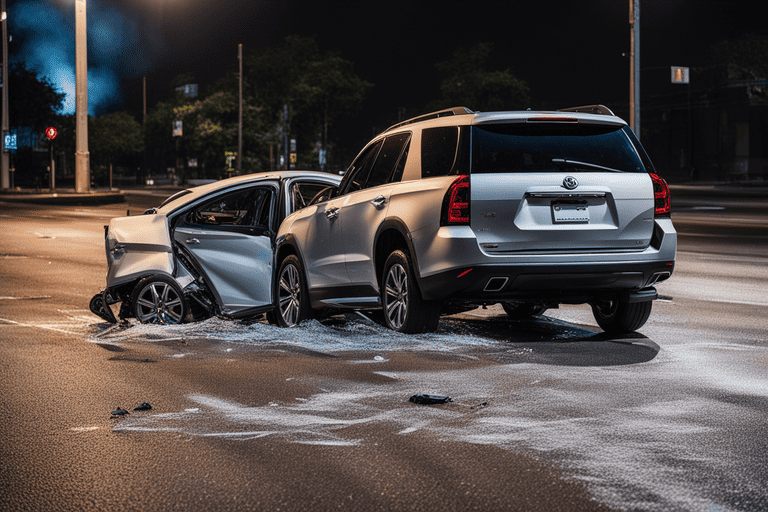
Rental Car Insurance covers the repair, replacement, and other potential expenses due accidents, theft, and other damage to a rented vehicle.
If you’re planning to rent a car, it’s a good idea to think about getting rental car insurance. This kind of insurance helps you if the rental car gets damaged, someone steals it, or if it’s part of an accident. Sometimes, the insurance you have for your own car might not fully cover a rental vehicle. That’s where rental car insurance comes in.
It can cover the things your regular insurance doesn’t, like a collision damage waiver which helps pay for repairs if you get into a wreck, personal accident insurance for medical costs if you get hurt, and extra liability protection which can cover damage or injuries you cause to others.
Choosing to get rental car insurance means you won’t have to worry as much about big bills if something happens to your rental car. Before you decide, it’s smart to look closely at what their coverage offers and think about what you really need. That way, you can pick the right coverage for you and feel more relaxed while you’re on the road.
Key Takeaways
- Rental Car Insurance provides protection against damage, theft, and accidents that may or may not be covered by your personal car insurance.
- Understanding the terms and coverage of rental insurance options is crucial before making a decision.
- Collision Damage Waiver/Loss Damage Waiver (CDW/LDW) covers rental car damages, preventing the need to pay for repairs or replacement.
- Personal Accident Insurance (PAI) provides coverage for accidents involving the rented car, including medical bills for injuries sustained.
Understanding Rental Car Insurance
Don’t assume you’re covered sufficiently when renting a car. Understand your options and confirm you have the coverage you need for the rental car before driving a rental vehicle.
Let’s talk about why it’s smart to understand rental insurance when you’re driving a car that’s not yours. This type of insurance helps cover costs if the car gets damaged or if you’re responsible for harm to another vehicle or person while driving the rental.
First off, you might not need to buy extra insurance if you already have a policy for your own car or if your credit card offers protection. Some credit cards give you what’s called a Collision Damage Waiver (CDW) or a Loss Damage Waiver (LDW). These waivers mean that if the rental car is damaged, stolen, or vandalized, you won’t have to pay a lot of money out of your pocket.
But be careful – coverage from credit cards might not cover everything. It’s a good idea to ask your agent if your personal car insurance would cover damage to a rental car. Check if it covers things like collision and comprehensive, loss of use (ie, paying for the rental car while it is out of service waiting to be repaired), and other possible risks. If your current insurance doesn’t make you feel safe enough, or has a high deductible, you might want to get additional insurance right from the rental car company.
Keep in mind, every insurance coverage comes with its own set of rules. Make sure you know what it covers and how it works before you say no to it or agree to buy it. By understanding all the terms, you can enjoy your trip knowing that you have the right protection for the rental car.
Coverage Types Explained
When you rent a car, you might worry about what could happen if the car gets damaged or stolen. Thankfully, rental car companies offer insurance options to cover these situations. Let’s go through the types of insurance you might consider:
First, there’s something called a Collision Damage Waiver or Loss Damage Waiver. This isn’t insurance but a promise from the rental company that they will take care of the costs if the rental car is damaged or stolen. However, keep in mind that you might still have to pay a part of the cost, known as a deductible.
Next, we have Personal Effects Coverage. If you ever have your things stolen from your rental car or they get damaged, this coverage will help pay you back for your lost or damaged items. This can be very useful, especially if your own car insurance or home insurance won’t cover these costs or if they ask you to pay a large amount before they help you (that’s another deductible).
Then, there’s Supplemental Liability Protection. This is extra protection that can help pay for damage or injuries to other people if you’re at fault in a car accident. This kind of coverage is important because it can help cover costs that your personal insurance might not fully cover.
It’s also wise to check if your credit card gives you any coverage for rental cars. Some credit cards provide insurance for damage due to accidents, or even for things like fire or theft that happen when you’re not driving.
Before you pick any rental car insurance, it’s a good idea to look at what insurance you already have to see what it covers. Then you can make a smart choice about what extra coverage you might need from the rental agency.
Collision Damage Waiver
Collision Damage Waiver (CDW), sometimes called a Loss Damage Waiver (LDW), pays if the rental car gets damaged or someone steals it. This is like a safety net that the car rental company offers.
It’s easy to think of it as just another cost when you’re standing at the rental counter, but getting a CDW can really protect you. If something bad happens to the rental car, and you didn’t choose the CDW, you could be stuck with a big bill to fix the car or even pay for a new one if it’s stolen. But remember, if you’re driving badly on purpose, like if you’re drunk, or if the car was already damaged before you rented it, the CDW won’t cover that.
So, before you say yes to this extra coverage, take a close look at the rental contract. Sometimes, there are rules about what it doesn’t cover. For example, it might not cover a car you’re using if you need medical help. Knowing what the CDW includes helps you decide if it’s right for you.
It’s all about making sure you can enjoy your trip without worrying too much about what might happen to the car.
Personal Accident Insurance
Personal Accident Insurance (PAI) an take care of medical bills if you or one of your passengers get hurt in a car accident. It’s different from a Collision Damage Waiver (CDW), which only covers the rented car.
This is super helpful if your own health insurance doesn’t cover much or if you’d have to pay a lot before your insurance kicks in. It’s like having an extra layer of protection for your wallet.
Also, if you don’t have Personal Injury Protection as part of your car insurance, PAI can fill that gap. It’s like borrowing an umbrella when you don’t have one, and a storm hits unexpectedly.
Last, PAI is great for travelers from other countries or anyone without enough health insurance. It can protect you from big, unexpected bills if you need medical help or if something even worse happens and there are costs after a death.
But before you say ‘yes’ to PAI, take a moment to look at your other insurance plans. You don’t want to pay for something you already have. It’s about making sure you have just what you need to keep you financially safe without extra costs.
Liability Protection Options

Liability Protection Coverage covers costs if you accidentally harm someone or their property. Normally your personal insurance would cover this but if you don’t have insurance in your name, this will cover you. It acts as a safety net, helping you avoid paying a lot of money from your own pocket if you’re involved in an accident.
The amount of money this will cover is set by something called coverage limits. Make sure these limits are high enough to cover what someone might sue you for, because if they’re not, you might have to pay the extra costs yourself.
Sometimes, if your car is in the shop because of an accident, your insurance or credit card might help pay for a rental car. This is known as rental car reimbursement coverage. It’s a good idea to know the details of your insurance so you can be sure you have enough coverage and can relax when you’re renting a car.
Special Coverage Considerations
When you’re renting a car, it’s smart to think about extra insurance to keep you worry-free. You might wonder if it’s worth getting rental car insurance. To answer that, you should know what kind of extra protection is out there. Your own car insurance might cover you a bit when you rent a car, but it might not cover everything. Also, if you’re thinking about using your credit card’s rental insurance, remember it usually only helps after your own car insurance has been used up.
Let’s talk about three types of extra insurance you can get:
First, there’s something called Personal Effects Coverage. If someone breaks into your rental car and takes your stuff, or if your things get damaged, this coverage can pay you back. Your regular car insurance doesn’t usually help with this.
Next, there’s Supplemental Liability Protection. This can give you more coverage for any damage or injuries you might cause with the rental car. It’s good to have if your own car insurance doesn’t cover much.
Last, some credit cards offer what’s called Primary Coverage. This is great because it can help you before your own car insurance has to. This means you may not have to file a claim with your insurance at all, which can save you some hassle.
Frequently Asked Questions
Q. Does Travel Insurance Cover Rental Car Damage?
A. Travel insurance may cover rental car damage, but coverage levels vary. Policyholders should review their travel insurance benefits to determine the extent of rental car damage protection included in their plan.
Q. Is Collision Damage Waiver Insurance Worth It?
A. Collision Damage Waiver (CDW) insurance can be valuable for mitigating financial risk associated with rental car damage. It provides coverage without deductibles and you won’t be responsible for the lost income to the rental car company while the rental car is being repaired.**
Q. Do I Need Extra Insurance When Renting a Car in Washington state?
A. In Washington, extra insurance for car rentals may be advisable to cover potential costs from accidents, theft, or damage, despite existing coverage, in order to mitigate financial risks associated with vehicle rental incidents.
Conclusion
In conclusion, rental car insurance coverage serves as a critical safeguard for drivers by providing financial protection against various unforeseen circumstances that may arise during the use of a rental vehicle.
It ensures that travelers can mitigate potential expenses from accidents, theft, or other damages. Since personal auto insurance policies may not fully extend to a rental situations, understanding and selecting the appropriate rental insurance coverage becomes imperative to ensure comprehensive protection and peace of mind.
Mid-Columbia Insurance – Your Trusted Independent Insurance Agent
Need insurance? Call our insurance professionals today at (509)783-5600 or click “Get a Quote” to request a quote on your insurance. At Mid-Columbia Insurance, our goal is to get you the insurance you want at a price you can afford!
